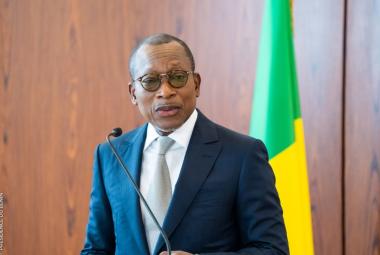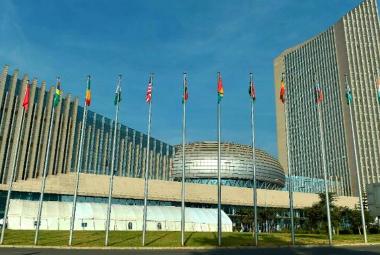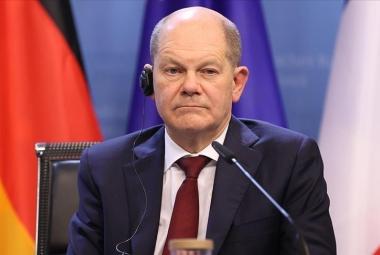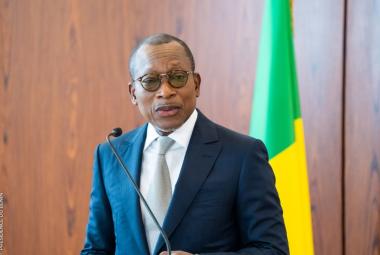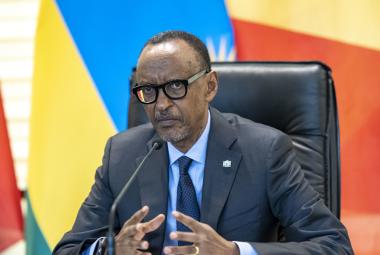After the incredible assassination of President Jovenel Moïse in 2021 and the chaotic management of his succession, the country was once again plunged into an unprecedented socio-political crisis. A situation created by gangs often aligned with different political movements but who ended up uniting to shatter the government of former Prime Minister Ariel Henry. By plunging the country into unspeakable chaos, with the only hope of a new political Transition.
It was necessary for the gangs who took over Haiti to come together to demand the immediate departure of former Prime Minister Ariel Henry for the international community to mobilize. And that it is more concerned about the situation in the country. Meanwhile, Haitians who did not belong to any of the gangs were at the mercy of gang lords. Haiti was indeed far from the concerns of the great powers of this world. The United States, China, Russia and all other Western powers were more concerned about the war in Ukraine and the conflict between Israel and Palestinian Hamas and other geopolitical issues. They let the situation run its course, not to say that they let the situation deteriorate. The UN having shown all its patent powerlessness in these times, it is up to the Community of Caribbean Countries to look into the case of Haiti. In the name of good neighborliness and solidarity.
On March 11, 2024, the Caribbean Community (CARICOM) organized an emergency meeting as the gangs brought Port-au-Prince under their control. It made it possible to respond to one of the gangs' demands and to mark the departure of former Prime Minister Ariel Henry. Having left for Kenya to seek the country's support for an international military force from President William Ruto, he had the latter's agreement. But he had been forbidden by the gang lords to return to Port-au-Prince. Which directly threatened the airport. On the eve of the CARICOM meeting, the vice-president of Guyana had suggested that the countries present “would seek to bring order and restore confidence to the Haitian people (…) Criminals have taken control of the country. There’s no government, it’s becoming a bankrupt society.” On March 11, former Prime Minister Ariel Henry announced that he would resign to make way for a Transitional Presidential Council.
Since then, the Presidential Transitional Council (CPT) in Haiti has had the heavy responsibility of bringing public order, calm and stability to the country. But also and above all to lay the foundations for the reconstruction of an economic and social fabric torn to shreds by decades of political instability. Made up of nine members, this body has a mandate which runs until February 7, 2026 at the latest. CARICOM, under whose aegis discussions took place for its formation, welcomed on this occasion this notable progress which allows “a glimpse of the possibility of a new beginning for Haiti”.
And yet, things have been progressively deteriorating for far too long and through procrastination after procrastination, intervention with a view to a solution has been postponed until the next day. This gave free rein to the gangs to fight each other, to pillage, to kill, to end up colluding against the Haitian politicians whom they accused of all evils. Just as if these gangs whose hands are gloved in the blood of civilian populations, trapped defenseless, killed or raped. No frustration and no recrimination against the country's political actors can authorize this. There is no need to recall here the tumultuous socio-political history of Haiti and the actions of its political actors and its law enforcement.
In his intervention at the Forum of Peoples of African Descent which was held on April 17, 2024 at the Palais des Nations in Geneva, Switzerland, the President of the Bar Association, member of the Haitian delegation, Me Jacques LETANG notably declared: “Haiti is going through a new period of acute crisis which is on the verge of sweeping away the vestiges of the rule of law and bringing about the reign of violence and impunity.
But this crisis does not fall from the sky. It is the product of a complex history, where international interventions tinged with good feelings have never ceased to be worked by postcolonial issues marked by a deep contempt for this people of former slaves who so proudly won their freedom . As if, despite everything, it satisfied some people to be able to say: this is all they are capable of.”
What this umpteenth sociopolitical crisis in Haiti tells us about the world does not only concern Haiti. There should be no mistake about it. The world's view of this country and its population goes well beyond that. It concerns all of Black Africa and the entire diaspora throughout the world, including. Even though we shout from the rooftops and adopt all the most anti-racist laws that exist, Black Africa in particular and all Black people around the world - whatever some think - must resolve to understand that it is not There are only two things to build to force respect and dignity: Unity and Solidarity. If indeed they want to erase the stereotypes that centuries of historical precedent have stuck to the skin of Black people around the world and their descendants. And for this, the Unity of Black Africa is imperatively a question of Dignity but also a good guarantee of development.
Me Jacques LETANG quite rightly declared: “It is time, once again, to affirm that we are capable of better. That we are a great nation, with deep roots, which can bring a lot to the world, which has already brought a lot to the world.
But to do this, we must collectively ask ourselves the right questions about the reasons that led us to where we are.
We must shed light on the scars left by slavery and colonization, on the bleeding caused by the ransom demanded by France and the unworthy debt purchased by the United States.”
Black Africa cannot continue to hide its face by playing into the hands of the great powers without any geopolitical vision. It cannot continue to be the cash cow of those who need its natural resources or its demographics. Without any compensation in exchange that puts it definitively on the path to its own development. The Exception of Black Africa cannot be well understood – in every sense of the word – in an organization with interests as heterogeneous as the African Union (AU). It is up to its political leaders to show that they are no more stupid or corrupt than any world leaders. And that before being the laughing stock of the world, Black Africa was the center of the world in every way. And long before, it was also at its beginning. It is definitely its development today that could significantly and definitively change the way one continue to look at Black people and Afro-descendants wherever they are in the world. And it is in no way through any economic aid policy or anti-racist pity measure. No more than by showing intellectual dishonesty or political fraud to sell Black Africa the idea that it is Russia and China who will come and save Black Africa. Why does China, which wishes so much for Black Africa, not offer it the modus operandi of the commercial relations which it had with the West? Why did Russia, which is so concerned about the Sovereignty of Black Africa and of all of Africa for that matter, violate the Sovereignty of African countries in full view of the African Union (AU) by installing its mercenaries from the Wagner Group wherever Africa has banned its own nationals from working as mercenaries?
The only way out or salvation is what Professor Dr. Emmanuel KABONGO MALU of the Democratic Republic of Congo calls the “United States of Black Africa” in his book entitled Globalization against Africa. Black Africa as a whole must understand the fact that it must not only serve as a market for Westerners or for the Chinese and Russians. It must unite to define its own political and economic future and resolutely follow the path it has chosen. And the two must go hand in hand.
How many marches or demonstrations have you recorded around the world in support of the people of Haiti? Or how many marches or demonstrations have you recorded around the world in support of the people of Darfur? And one can extend the list not only with the wars and violence which concern Black Africa or the Black World...The Black World must wake up. And challenge your own leaders first and without any complacency, instead of them being like puppets in the hands of others. And this necessarily involves the creation of a “Union”. Black Africa cannot continue to do everything as if what is happening elsewhere in the world does not concern it, and even less when it concerns its own populations. And just wait for help. A well-known and popular proverb in Africa says: “the hand that gives is always above the one that receives.”
Even if the history of the past marked by Slavery and then Colonization was to the disadvantage of the countries of Black Africa and Afro-descendants – and this is only a euphemism -, this cannot eternally constitute an argument to justify their own political or economic failures. It is up to the new generations to build another vision of a recovery of the situation in the light of the challenges of the world as it emerges today. And without continuing to fall into the blissful naivety which consists of believing in the soothing speeches of certain great powers or succumbing to the temptation of new experiences which could prove even prove more regrettable and damaging many years later.
By Serge Félix N’Piénikoua




